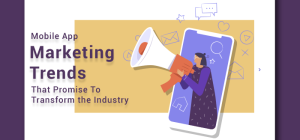 The power of digital marketing has revolutionized the way businesses engage with their customers. From startups to multinational corporations, harnessing the potential of digital marketing has become a prerequisite for success. Digital marketing is paramount for businesses, able to drive growth, facilitate ROI tracking, seize global opportunities, enable effective segmentation, and reach targeted audiences.
The power of digital marketing has revolutionized the way businesses engage with their customers. From startups to multinational corporations, harnessing the potential of digital marketing has become a prerequisite for success. Digital marketing is paramount for businesses, able to drive growth, facilitate ROI tracking, seize global opportunities, enable effective segmentation, and reach targeted audiences.
Fueling Growth
Digital marketing serves as a catalyst for business growth. By leveraging various digital channels such as search engines, social media, email marketing, and content creation, businesses can amplify their brand visibility and expand their customer base. With an ever-increasing number of internet users, digital marketing offers unparalleled reach and potential to tap into new markets and demographics.
To fuel growth, businesses must adapt and stay relevant. Traditional marketing methods often lack the agility required to keep pace with the rapidly evolving digital landscape. Digital marketing enables businesses to remain nimble, experiment with different strategies, and quickly adapt their campaigns to capitalize on emerging trends and consumer behavior.
ROI Tracking for Enhanced Performance
One of the significant advantages of digital marketing is its ability to measure and track return on investment (ROI) accurately. Unlike traditional marketing, where gauging the effectiveness of campaigns can be challenging, digital marketing provides comprehensive analytics and reporting tools. These tools allow businesses to monitor key performance indicators (KPIs) such as website traffic, conversion rates, click-through rates, and customer engagement.
With ROI tracking, businesses can optimize their marketing efforts in real-time. By analyzing data and identifying successful strategies, they can allocate resources efficiently, focusing on channels and campaigns that deliver the highest ROI. This data-driven approach enhances decision-making, minimizes wasteful spending, and maximizes the effectiveness of marketing budgets.
Seizing Global Opportunities
In today’s interconnected world, digital marketing breaks down geographical barriers and opens up global opportunities for businesses of all sizes. With a strategic digital marketing plan, businesses can expand their reach beyond local markets and tap into a vast global consumer base.
Digital marketing facilitates internationalization by enabling businesses to localize their marketing efforts. Through targeted content creation, translation services, and localized advertisements, businesses can connect with diverse audiences and adapt their messaging to resonate with specific cultures and languages.
Moreover, digital marketing offers cost-effective avenues for global expansion. Compared to traditional marketing methods such as print or TV advertisements, digital campaigns can be tailored to specific regions, eliminating unnecessary expenses associated with broad, blanket approaches.
Effective Segmentation for Precise Targeting
Segmentation lies at the core of successful marketing campaigns. Digital marketing empowers businesses to segment their audiences with precision and target specific demographics, interests, and behaviors. By understanding customer preferences and crafting tailored messages, businesses can deliver relevant content that resonates with their target market, fostering stronger connections and higher conversion rates.
Digital marketing channels provide valuable insights into audience demographics and behavior. Through tools like Google Analytics, businesses can gather data on user demographics, interests, and online behavior patterns. This information enables businesses to create buyer personas and develop highly targeted campaigns that address the specific pain points and needs of their ideal customers.
Reaching Targeted Audiences
In the digital realm, businesses can reach their targeted audiences more effectively than ever before. With the ability to precisely define audience characteristics and behaviors, digital marketing channels offer unparalleled access to potential customers.
Search engine marketing (SEM) and search engine optimization (SEO) tactics help businesses improve their visibility in search engine results pages (SERPs). By optimizing website content, businesses can ensure their offerings are visible to users actively seeking relevant products or services.
Social media platforms have also emerged as powerful tools for audience targeting and engagement. Platforms like Facebook, Instagram, Twitter, and LinkedIn allow businesses to create targeted ads and reach specific audience segments based on demographics, interests, and browsing behavior. With precise targeting options, businesses can ensure their messages are seen by the right people, increasing the likelihood of conversions and generating higher ROI.
Email marketing is another effective digital marketing tool for reaching targeted audiences. By building an email list of subscribers who have shown interest in their products or services, businesses can deliver personalized content directly to their inbox. This direct communication channel allows for tailored messaging and increases the chances of driving conversions and repeat business.
Leveraging Content Marketing
Content marketing plays a pivotal role in digital marketing strategies. It involves creating and distributing valuable and relevant content to attract and engage a target audience. Through blog posts, articles, videos, infographics, and podcasts, businesses can establish themselves as industry authorities and build trust with their audience.
By consistently providing valuable content, businesses can position themselves as thought leaders in their respective industries, which contributes to brand recognition and customer loyalty. Content marketing also enhances search engine visibility, as search algorithms prioritize websites with high-quality and relevant content. This leads to increased organic traffic and higher chances of reaching and converting the target audience.
Enhancing Customer Engagement and Interaction
Digital marketing platforms provide businesses with opportunities to engage and interact with their customers in meaningful ways. Social media platforms, for instance, allow businesses to have direct conversations with customers, address their concerns, and respond to feedback promptly. This fosters a sense of trust and builds a positive brand image.
In addition, features like live chats on websites and personalized email marketing campaigns enable businesses to provide tailored support and recommendations based on customers’ specific needs and interests. Such interactions contribute to improved customer satisfaction, brand loyalty, and increased chances of customer advocacy.
Embracing Mobile Marketing
With the proliferation of smartphones and the increasing number of mobile internet users, mobile marketing has become an indispensable aspect of digital marketing. Mobile-friendly websites, responsive design, and mobile apps allow businesses to reach and engage with their audience on the go.
Mobile marketing enables location-based targeting, where businesses can deliver customized promotions and offers based on a user’s geographical location. This level of personalization and convenience enhances the user experience and drives conversions. Moreover, mobile advertising on platforms like social media apps and mobile games provides additional opportunities to capture the attention of mobile users and drive brand awareness.
Harnessing the Power of Data and Personalization
Digital marketing thrives on data, and businesses can leverage this data to personalize their marketing campaigns. By analyzing customer behavior, purchase history, and preferences, businesses can create personalized experiences that resonate with individual customers. Personalization increases customer engagement, satisfaction, and the likelihood of repeat purchases.
Data-driven digital marketing also enables businesses to optimize their campaigns in real-time. By continuously monitoring and analyzing data, businesses can identify patterns, trends, and areas for improvement. This iterative process helps refine marketing strategies, enhance targeting, and ensure ongoing success.
Adapting to Evolving Consumer Behavior
Consumer behavior is constantly evolving in the digital age, and businesses must adapt their marketing strategies accordingly. With digital marketing, businesses can closely monitor changes in consumer preferences and behavior, allowing them to make agile adjustments to their campaigns.
Through social listening and monitoring tools, businesses can gain insights into customer sentiment and adapt their messaging to align with changing trends and needs. This flexibility ensures that businesses remain relevant and continue to capture the attention of their target audience, contributing to sustainable growth and success.
Conclusion:
Digital marketing is a vital component of any successful business strategy in the digital age. It offers unparalleled growth opportunities, facilitates ROI tracking, opens up global markets, enables precise segmentation, and reaches targeted audiences effectively. By leveraging the power of digital marketing channels such as search engines, social media platforms, email marketing, and content creation, businesses can thrive in the competitive landscape.
As technology continues to advance and consumer behavior evolves, businesses must stay agile and adapt their digital marketing strategies to stay ahead of the curve. Embracing emerging technologies such as artificial intelligence, chatbots, virtual reality, and voice search can provide additional opportunities for businesses to engage with their audience and deliver personalized experiences.
In conclusion, digital marketing has become an essential tool for businesses seeking growth and success in the digital era. Its ability to fuel growth, facilitate ROI tracking, seize global opportunities, enable effective segmentation, and reach targeted audiences make it a powerful asset in today’s highly competitive business landscape. By harnessing the potential of digital marketing, businesses can build brand visibility, drive conversions, foster customer engagement, and ultimately achieve long-term success in the dynamic world of digital commerce. So, if you’re looking to elevate your business to new heights, it’s time to embrace the digital marketing revolution and embark on a journey of innovation and growth.







